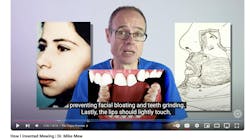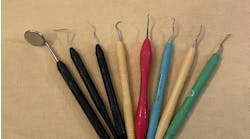By Robert Doherty, DDS, MPH
Like most of us in the dental profession, I went to school expecting to associate and then eventually open a private practice in my hometown of Long Beach, Calif. During my years in dental school, “public health dentistry” was basically the health department, and many times it seemed to be what someone considered when there was no other place to go.
My career with the U.S. Public Health Service greatly changed that outlook, and I had the opportunity to witness oral health care delivery throughout the country as well as in industrialized and third world countries. As a result, I have spent the last 22 years working full-time clinically in North Carolina’s Community Health Centers (CHCs), treating almost exclusively those who are at or below 200% of the federal poverty guidelines. Our patients pay a reduced fee, and we are helped by grants and donations that cover about 30% of our budget.
Over the past few years, many of the country’s CHC dental programs have evolved into modern, efficient, high-tech, comprehensive oral health care programs working hard to meet the area’s many needs for adults and children. Dentists in the centers are well paid with good benefits, including extensive continuing education. In our center in eastern North Carolina, we have more than 15,000 patients, and we are in a constant learning environment. Young dentists join us and are exposed to complex oral surgery, endodontics, removable and fixed prosthetics, implants, orthodontics, and pediatric dentistry. Our private practice colleagues are supportive of our efforts, and we work closely with the two schools of dentistry in North Carolina.
At the National Network of Oral Health Access (NNOHA) Conference last October in Washington, D.C., the courses were packed with young and mid-career CHC dentists from throughout the country learning about practice management, leadership, grant writing, community programs, IT, and all phases of clinical dentistry. There was one CHC dental program there from Gaston County, N.C., whose ambitious school program was honored for achieving the goal of making all the children at one of the county’s elementary schools virtually caries free.
At this time, only 66 of North Carolina’s nearly 4,200 dentists work in these settings. Yet the need is overwhelming, here and in many communities across the country. We have a “call-in day” each month to accept 50 new comprehensive treatment patients, and we normally get 400 calls in the first two hours. We can use more centers like ours, and we can use more dentists like the ones working with us. While it might take a while for the image of “public health dentistry” to change, it’s grown into a viable and substantive option for many dentists, whether for a few years or as a career.
Personally, I cannot imagine a more challenging, vital, satisfying, and enjoyable career choice than working with a Community Health Center. To many of us, this is the most appealing part of the work — if these patients did not get this work done, in this setting, at these reduced fees, they would not get the work done. They have no other place to go.
The vision and goals of these programs naturally work toward making a difference in thousands of lives. For those of us who work with these programs, that vision helps to make us better oral health professionals and, at the same time, better people.
Robert Doherty, DDS, MPH, is Dental Director of Greene County Health Care, Inc., in Snow Hill, N.C.





